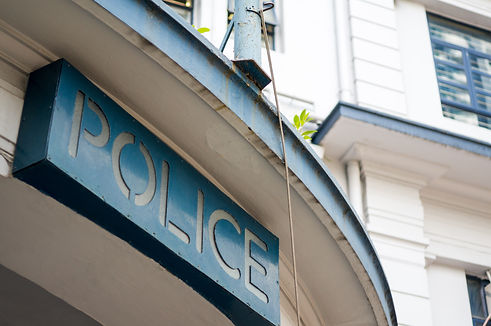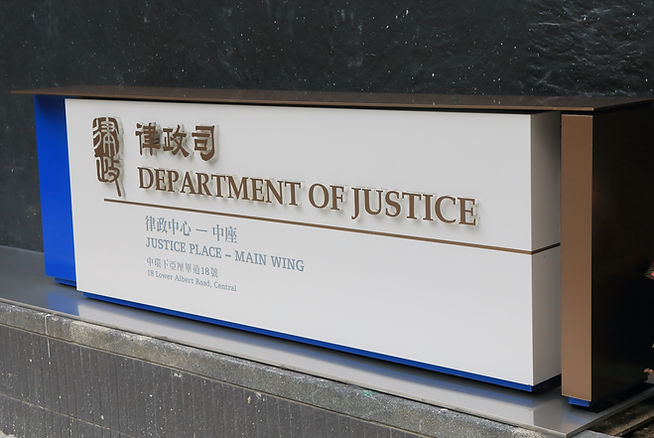+852 93856418
24 Hours Criminal and Civil Legal Support
HK Criminal Procedure
We understand that being arrested is frightening because you don't know what to expect


48 hours detention?
According to Police Force Ordinance, Cap 232, Police can detain an arrestee for up to 48 hours.
However, it has been stated by the Hong Kong Court that Police must release or charge the arrestee forthwith as long as the investigation is finished, even though the 48 hours limit has not been used up.
During detention, the Police may conduct a house-search at your premises, if your consent is obtained.
Answering Police Questions
A person is not legally obligated to answer police question. See the case authority of Lee Fuk Hing v HKSAR [2004] 7 HKCFR 600.
Whatever you admit to the Police is an admissible evidence against you yourself. See R v Ibrahim [1914] AC 559
“It has long been established as a positive rule of English criminal law that no statement by an accused is admissible in evidence against him unless it is shown by the prosecution to have been a voluntary statement in the sense that it has not been obtained from him either by fear of prejudice or hope of advantage exercised or held out by a person in authority.”
Outcome after Police Detention
1
Release on bail
If your case requires ongoing investigation that cannot be finished within 48 hours detention, the Police will grant you a bail. The next bail date will usually be 4 - 6 weeks.
2
Lay charge
If there is enough evidence, the Police may also lay charge against you to appear before the Magistrates Court.
3
To conduct ID Parade
If identity is an issue in your case, the Police may conduct an ID parade. Usually, there are 9 to 14 actors standing next to you in the parade to see if the victim or witness can identify you

Binding-over
Once you are charged, the Department of Justice can be asked to consider offer no evidence against you and ask to bring you to the Court for a binding-over order, i.e (ONE/BO)
It is usually seen in minor or simple offences.
A binding-over order leaves no criminal conviction record.
Penalties
The maximum penalty for committing a particular offence is usually set out in the legislation of the relevant offence. The court will decide what sentence (i.e. penalties) to be imposed on an offender by taking into consideration all the relevant factors including for example the nature of the offence, the maximum penalty set out in the legislation, why and how the offence was committed, and the individual circumstances of the offender. The following list explains the usual types of penalties (i.e. sentencing options) that the courts in Hong Kong may impose on an adult offender :
Imprisonment
Imprisonment is the heaviest penalty and involves incarceration of the convicted offender in a prison for a fixed period of time. Normally the offender needs not serve the full length of the actual term of imprisonment imposed by the court. According to rule 69 of the Prison Rules(Cap. 234A of the Laws of Hong Kong), the period of imprisonment may be subsequently reduced if the conduct of a prisoner is good. The maximum amount of reduction should not exceed one-third of the actual term of imprisonment. In practice, a prisoner will normally be given the full one-third reduction unless he or she behaves poorly or violates any prison rules.
Suspended Sentence
The court may impose a fixed term of imprisonment and then order that the sentence shall not take effect for a fixed period of 1 to 3 years. This is called a suspended sentence and the practical effect is that the offender needs not serve any prison sentence unless that offender commits an offence again within the prescribed period of time during which the sentence is suspended. Suspended sentences cannot be imposed in respect of certain offences , known as "excepted offences", which are set out in Schedule 3 of the Criminal Procedure Ordinance. They include robbery, indecent assault and other serious crimes. Moreover, suspended sentences are only applicable for those offenders who are sentenced to not more than two years imprisonment
Community Service Order
A community service order is an alternative to imprisonment whereby the offender is required to perform unpaid work in the community. The work is administered by the probation service. The maximum length of such a sentence is 240 hours. Not all offenders are suitable for such orders, and suitability reports are called for before such orders are made.
Probation Order
Persons under probation orders are required to be of good behaviour and to remain in contact with a probation officer as may be required. People on probation may also be required to reside in an approved institution. If a probationer re-offends whilst on probation (that is, the probation order has not yet expired), or breaches the conditions of the probation order, that person may be re-sentenced for the original offence.
Fine
A fine is a monetary penalty which may be imposed in lieu of or in addition to other forms of penalty. Failure to pay a fine will result in imprisonment, usually for a period of time which accords with the amount of the unpaid fine. Fines may be ordered to be paid by instalments.
